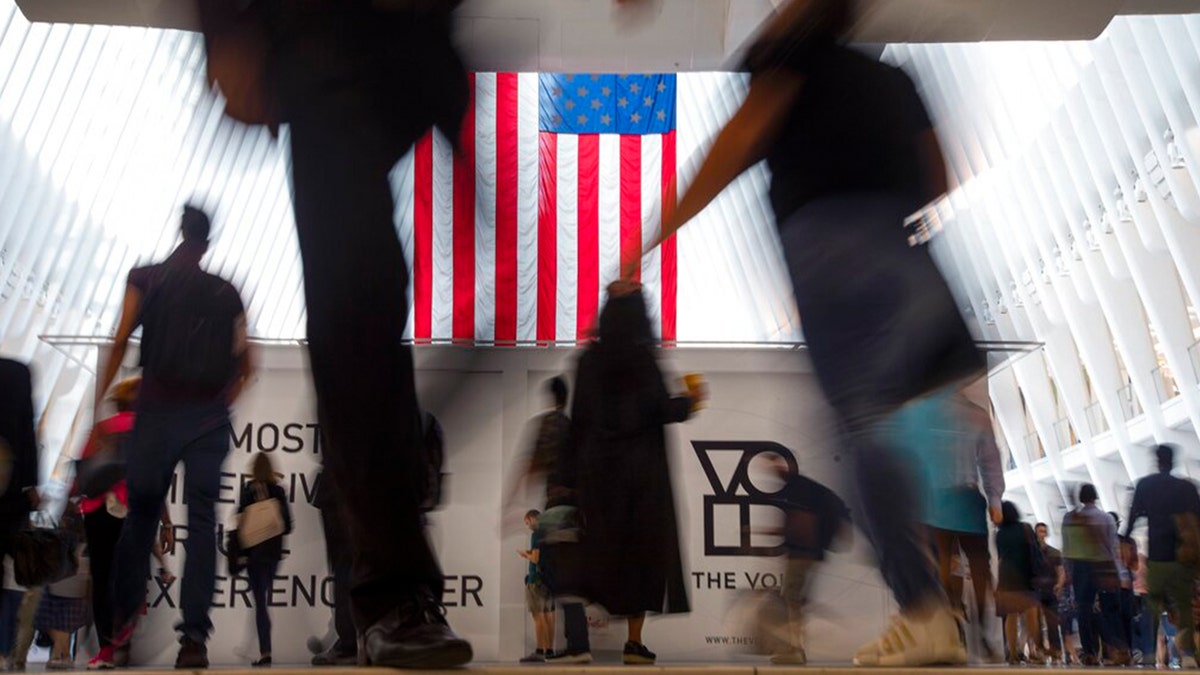Fox News Flash top headlines for September 20
Fox News Flash top headlines are here. Check out what's clicking on Foxnews.com.
A new Senate report warns that U.S. adversaries are becoming more sophisticated in their ability to steal secrets and says U.S. counterintelligence must enact robust reforms to better meet this challenge.
The redacted report, from the Senate Select Committee on Intelligence, was released Tuesday after two years of independent research conducted by non-partisan Committee staff.

FILE: Senate Intelligence Committee Chairman Mark Warner, D-Va., speaks to a reporter at the Capitol in Washington, March 16, 2022. (AP Photo/J. Scott Applewhite)
The report identified challenges facing the National Counterintelligence and Security Center (NCSC) and offered solutions to ensure that it is better positioned to respond to these foreign intelligence threats.
"The United States faces a dramatically different threat landscape today than it did just a couple of decades ago," said Sen. Mark Warner, the Virginia Democrat who chairs the Senate Intelligence Committee, in a statement. "New threats and new technology mean that we have to make substantial adjustments to our counterintelligence posture if we are going to protect our country's national and economic security."
Sen. Marco Rubio, the Florida Republican who is the committee's vice chairman, noted that China and other adversaries are "targeting all sectors of society." The committee wants to make sure intelligence agencies have "the authorities and resources necessary to effectively confront these new counterintelligence threats," he said.
The committee’s report determined that foreign intelligence entities are targeting both the public and private sectors, including the financial sector, the U.S. industrial base, academic entities, U.S. government departments, and agencies that are not part of the intelligence community.

FILE: People walk past an American flag at the start of a work day, at the Oculus, part of the World Trade Center transportation hub in New York, Sept. 11, 2019. (AP Photo/Wong Maye-E, File)
The report warned that U.S. adversaries have access to a wider variety of tools for stealing information or inflaming social and political tensions than in past years.
The report concluded that U.S. spy agencies' efforts to meet these challenges are hampered by miscommunication and a lack of money and staff at the agency intended to coordinate those efforts. It also recommended that Congress, in conjunction with the Executive Branch and the Office of the Director of National Intelligence, develop a consistent U.S. government-wide definition of counterintelligence that reflects today’s landscape.
There's also disagreement among intelligence officials about who should lead responses to cyberattacks and campaigns trying to influence Americans — and whether those efforts should be categorized as counterintelligence, the report said.
HUMAN RIGHTS VIOLATIONS CONTINUE IN VENEZUELA, ACCORDING TO UN EXPERTS
The Senate report primarily focused on NCSC, an element of the Office of the Director of National Intelligence. ODNI was created in the 2004 reforms following the Sept. 11 attacks and revelations that agencies did not share information about the hijackers involved.
The NCSC is responsible for coordinating efforts by the U.S. government but cannot fund or mandate programs for many government agencies or private companies that hold secrets prized by foreign spy services.
President Biden still hasn't nominated a director for NCSC, which is currently led by acting director Michael Orlando.
Tuesday's report comes after the disclosure of high-profile attacks over the last several years from the theft of millions of government employees' personal data to a breach of the Microsoft Exchange email system.
CLICK HERE TO GET THE FOX NEWS APP
Washington has long accused Beijing in particular of sanctioning wide-ranging campaigns to steal secrets through spying, cyberattacks, and corporate espionage, as well as spreading disinformation about the COVID-19 pandemic and considering efforts to influence American democracy. The FBI has said it opens a new counterintelligence investigation involving China every 10 hours on average.
The Associated Press contributed to this report.






